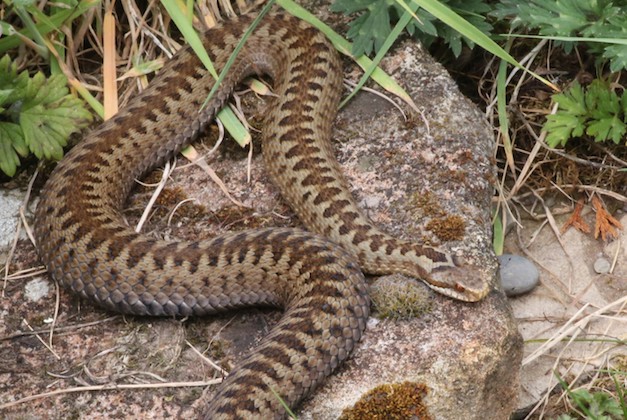Pheasant releases ‘could wipe out adders in most of Britain’
An adder expert has accused the shooting community of 'uncontrolled' game bird releases

A recent article in The Guardian stating that adders are endangered due to “uncontrolled release of millions of game birds” is incorrect say the Game & Wildlife Conservation Trust (GWCT) and the National Gamekeepers Organisation (NGO).
The piece highlights the claim of Nigel Hand, a trustee of Amphibian and Reptile Groups of the UK (ARG UK), who states: “The adder is on the brink of extinction in many sites across Britain … and it is the uncontrolled release of millions of pheasants by shooting estates which is pushing it over the brink.”
Many reasons for decline
There are actually many reasons for the adder’s decline; loss of habitat, persecution, predation, disturbance and inbreeding. Although pheasants do kill and eat adders, the reptile’s decline is not solely due to gamebirds. Furthermore, as the weather becomes warmer, adders are spotted year-round, when previously the snakes hibernated underground from October to March, meaning that they are now are present during the pheasant season.
No robust evidence of pheasant predation
Dr Rufus Sage, Head of Lowland Gamebird Research at the GWCT spoke directly to Shooting UK on the issue, commenting: “While adder populations are declining in the UK, it is likely that habitat loss and degradation and disturbance are the most important factors. There is no robust evidence that pheasant predation affects the UK adder population or contributes to the decline or loss of local populations, as suggested.
“The headlines referring to extinctions by 2032 are misleading (see the GWCT ‘What the Science Says’ piece for details). In the context of other modern land-uses however, pheasants are a plausible contributing factor to local declines. GWCT best practice guidelines ask game managers to consider and avoid especially sensitive sites and this should include siting release pens on or next to known adder colonies. Further research on the potential impacts of gamebird release on reptiles is required.”
Shooting UK also spoke to Liam Bell, chairman of the National Gamekeepers Organisation, who replied robustly: “The implication from The Guardian article that pheasants are responsible for the decline in the adder has resulted in one of the most misleading articles I have ever read. The research report apparently used to inform the article contains not a single mention of game shooting or pheasants.
“Seeing an adder in the wild is hugely exciting. No one wants to see a native species like this in decline. But, using anecdotal evidence just to squeeze a pointless shooting season story out of thin air does nothing to help the species and those scientists and real experts who are working hard to save it.”
Responsibility in gamebird management is strongly encouraged by the GWCT, which has just published 12 Principles of Game Management to advise land managers and keepers.








